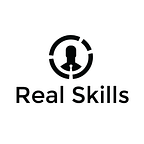The Intern To-Do List
You’ve got the role, but how can you make sure it doesn’t go to waste? Here are 5 ways you can capitalise on your summer vacationer program.
by Cynthia Huynh
With summer vacationer programs, there’s a lot of advice on how to improve your application and make yourself stand out in interviews. But when you do pass the interview stage, there’s not a lot of advice on how you should prepare or approach the program.
I interviewed Justin Huang, a UNSW Mechanical and Biomedical Engineering student who has an upcoming role as a tech consultant at Fujitsu to help with this dilemma. He has given his insights on how to extract the most out of summer vacationers after having undertaken a role as product support engineer for OSIsoft. Here are some tips on how to make the best of your internship!
TIP 1: BE A SPONGE FOR KNOWLEDGE
You have the opportunity to learn something every single day whether it is a pleasant situation or not. With that being said, ask for advice or constructive criticism for senior co-workers on what you’ve done well or could do better at after having completed a project or even after a week’s worth of work.
Documenting of what you’ve learnt will be useful. Keeping record of your experience each day will allow you to reflect and improve. You’ll be able to hone in on what you’ve learnt, which will ultimately allow you to take advantage of such knowledge.
TIP 2: SHOWCASE YOUR PERSONALITY
We all want to present the best versions of ourselves, especially in the workplace. Just make sure that you are delivering an accurate representation of yourself. You will be much more approachable and the social/group work aspect is inclined to happen a lot smoother because sincerity is the best route. A harmonious relationship amongst your co-workers is vital to a project being done efficiently and successfully. You’re more likely to enjoy your summer vacationer experience if you get along with the people there.
TIP 3: FORM CONNECTIONS!
This follows tip 2. Having a professional network is one of the biggest advantages of receiving job opportunities. As students, most of us don’t really have one and if there’s one thing you should capitalise on, it’s the opportunity to build your network. Expose yourself to as many people as possible and show genuine interest in learning from them.
As an intern, you’ll get to play the ‘intern card’ a lot so take advantage of it, email and introduce yourself to others within the organisation whose roles seem interesting and set up a 15 minute chat. Most people are willing to help out interns and graduates settle in the business and ultimately love seeing you grow and flourish in the workplace.
TIP 4: STAY ORGANISED
There are two things you should keep track of. The first being your responsibilities. Use to-do lists and calendars or any other organisational tools because orderliness is going to save you brain power and prevent burn out.
In the cases you feel overwhelmed with work, keep in mind your manager and team are there to support you. Have a chat with them on how you can best approach your workload and identify the quick-win tasks that can easily be completed.
TIP 5: ACT LIKE YOU’RE STILL TRYING TO GET THE JOB
Be on a constant mission of impressing your seniors as you are still being assessed. Putting 100% into something only gets you to the best possible outcomes. Most summer programs lead to graduate roles so have the same drive that got you the role in the first place.
I hope you find these tips useful and best of luck with your summer vacationer programs!
Looking for more job opportunities? Join the Subtle Professional Traits facebook group so you don’t miss out on potential internships!
If you’d like to contact us or learn more, check out our socials!
